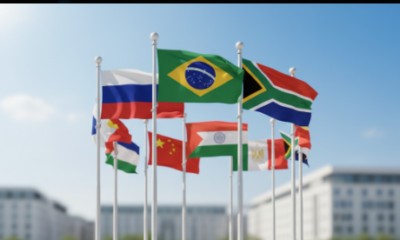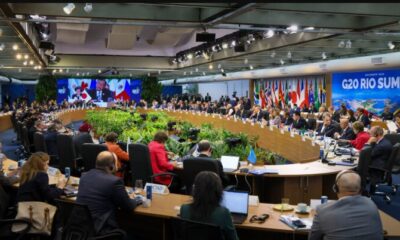There is dismissiveness about whether individual choices like how we consume and transport ourselves matter: Why cancel that trip to Europe if it’s too late anyway and if everyone is still addicted to fossil fuels? But Lou Leonard, a founder of One Earth Sangha, a Buddhist group focused on the crisis, told me that living like climate change is real and that we can do something about it are signals to others — and can help shift cultural norms. Who would have thought Burger King would one day serve delicious plant-based meat?
“We need to break the cognitive dissonance in as many ways as we can in order to be more real with what’s happening,” Mr. Leonard said. Making seemingly inconvenient changes now, he said, can also prepare us for what might be to come.
Zhiwa Woodbury, an eco-psychologist, believes that we are collectively experiencing climate trauma, of which we are both perpetrators and victims — our assault on the biosphere is an assault on ourselves. Altering habits like how we eat can make people feel more empowered and less overwhelmed, he said, and can shift our relationship with the natural world. After all, the belief that natural resources exist for our heedless exploitation got us to this point in the first place (and made us none the happier). “It makes us feel good that we’re doing something and it gets back to the idea of shared responsibility,” Mr. Woodbury said. “The idea that individuals are powerless only exists because we’ve made them feel powerless.”
Embracing the pain was something I struggled with more. Didn’t we deserve to feel bad? Maybe. But feeling despair is itself a kind avoidance. “What despair is telling you is that you haven’t processed your emotions,” Mr. Woodbury said.
In the Red Hook workshop, which used the pioneering decades-old work of the environmental grief activist Joanna Macy, the facilitator, Jess Serrante, said something that hit me like a thunderclap.
“Our pain for what is happening is the other side of the coin of our love for the world,” she told us. “We feel such depths of despair because we love the planet so much.”
Several psychologists told me they are telling the same thing to patients who are grappling with eco-despair: Feeling depressed about the crisis is actually a sane, healthy response. Yet as a culture, we pathologize depression as a personal failing, and as individuals, we avoid it, partly, Ms. Serrante said, out of the fear that if we dive in we won’t emerge. But that causes us to shut down. By jumping into the pain, it can alchemize into something bigger, Ms. Serrante told us, and reconnect us with our deepest selves.

 Entertainment7 days ago
Entertainment7 days ago
 Tech3 days ago
Tech3 days ago
 Tech3 days ago
Tech3 days ago
 General News1 day ago
General News1 day ago
 Business News9 hours ago
Business News9 hours ago
 Jobs5 hours ago
Jobs5 hours ago
 General News1 day ago
General News1 day ago
 Business News8 hours ago
Business News8 hours ago

